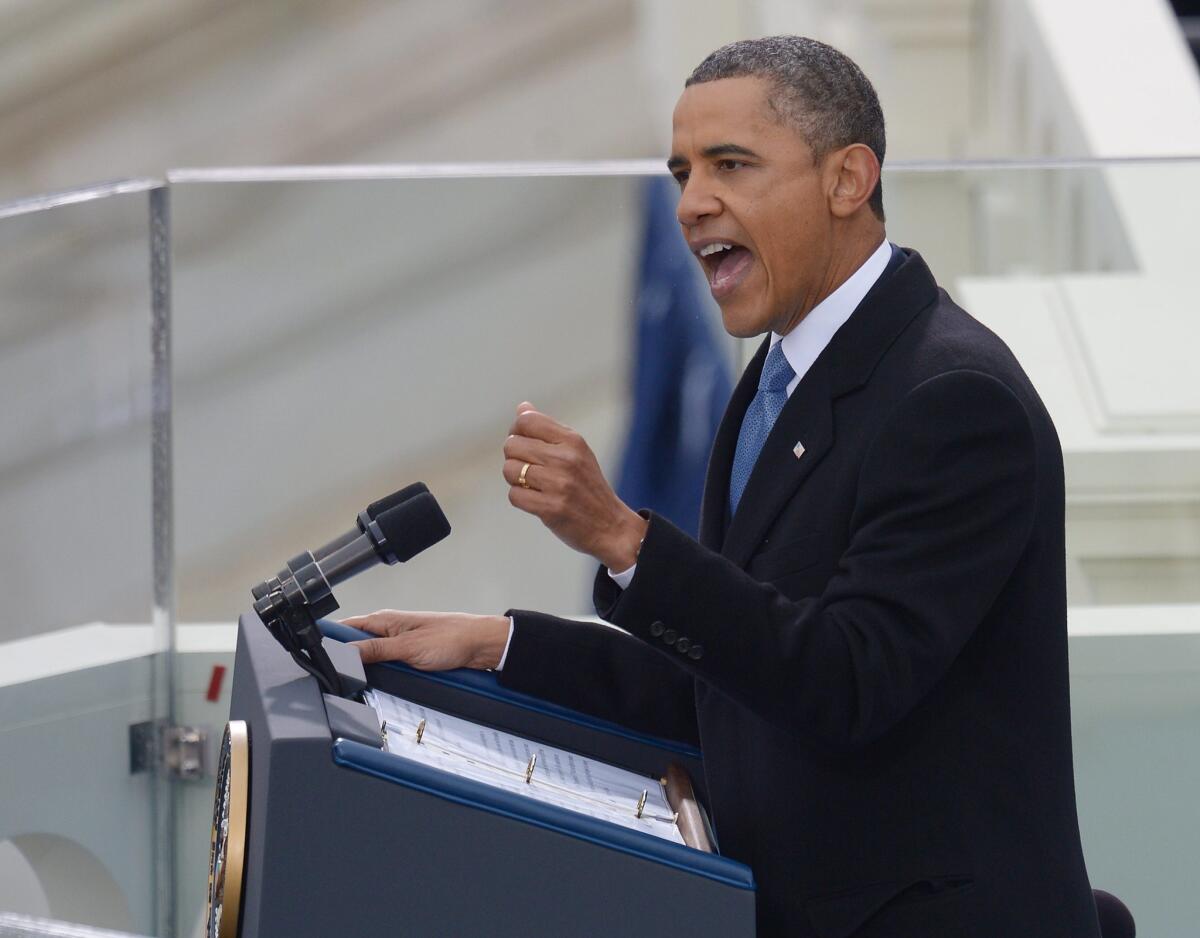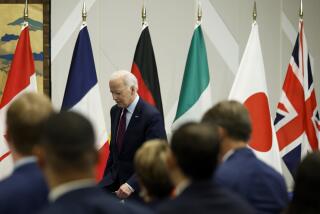Fiscal fitness, Mr. President

President Obamaâs second inaugural address was a ringing affirmation of Democratic priorities and a resolute defense of federal safety-net programs. But thereâs little chance that the president will be able to move his second-term agenda through Congress unless and until Washington stops its relentless, all-consuming bickering over the federal budget. For the sake of his own aspirations, Obama should focus on something he paid scant attention to in Mondayâs speech: persuading Democrats and Republicans to agree on a plan to pare the deficit and bring the national debt under control.
The presidentâs approach so far has been to take modest positions on the budget publicly while pushing for a âgrand bargainâ in private negotiations with House GOP leaders. His annual budget submissions to Congress have been notably light on ways to slow the growth of entitlements or shore up Social Security for the long run â vital elements of any deal with Republicans.
The presidentâs role in the budget is limited, given that the Constitution gives Congress control of the federal purse. And administration officials have argued that when presidents take the lead in budget talks, their proposals become lightning rods for criticism and impede a deal.
But weâre now entering the third year of the budget fight between the House Republican majority and the Democrats who control the Senate and the White House, and enough is enough. Obamaâs efforts to reach a sweeping deal with House Speaker John A. Boehner (R-Ohio) have borne no fruit, in no small measure because much of the House Republican caucus has refused to take direction from Boehner. As if we havenât had enough brinkmanship already, the next tussle could result in a government shutdown in March. Nowâs the time for a new, more public approach by the president.
We agree with Obama that it will take a combination of tax increases and spending cuts to put the governmentâs fiscal house in order. Republicans swallowed hard and accepted an increase in tax rates for the highest incomes to start the year. Itâs the Democratsâ turn to recognize that federal benefit programs, and particularly healthcare entitlements such as Medicare and Medicaid, are on an unsustainable path despite the savings from the 2010 healthcare law.
Obama should lead a Democratic push for reforms that preserve these programs for those who need them, while also reducing the deficit and stopping the federal debt from growing faster than the economy. Heâs in the best position to lead on this issue, able to provide political cover for Democrats concerned that their constituents wonât put up with changes to the status quo, while showing Republicans that there are ways to save money without abandoning the governmentâs commitment to the elderly and poor. To create an opening for the rest of his agenda, he needs to step up to that role.
More to Read
A cure for the common opinion
Get thought-provoking perspectives with our weekly newsletter.
You may occasionally receive promotional content from the Los Angeles Times.










